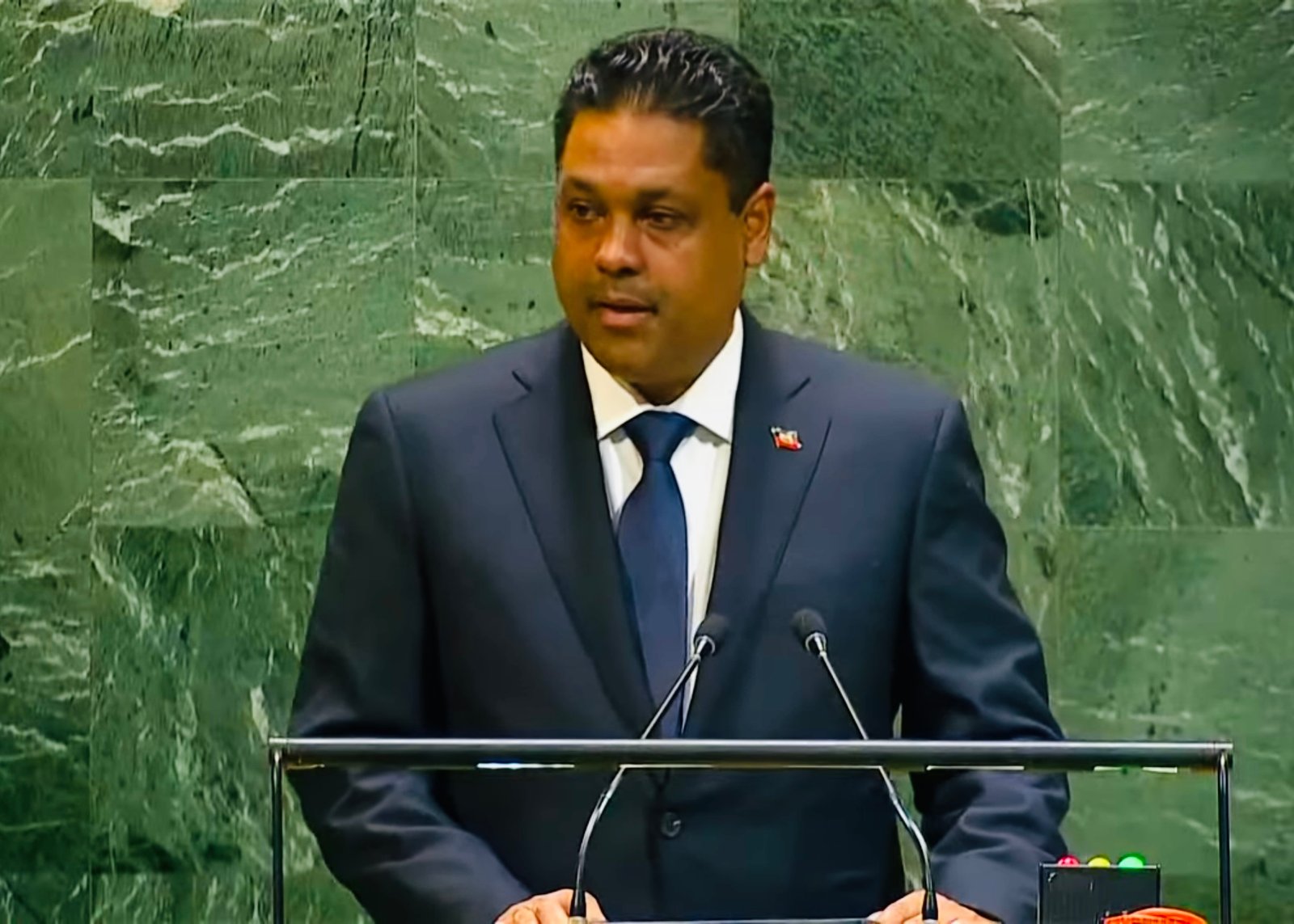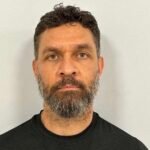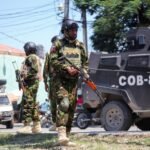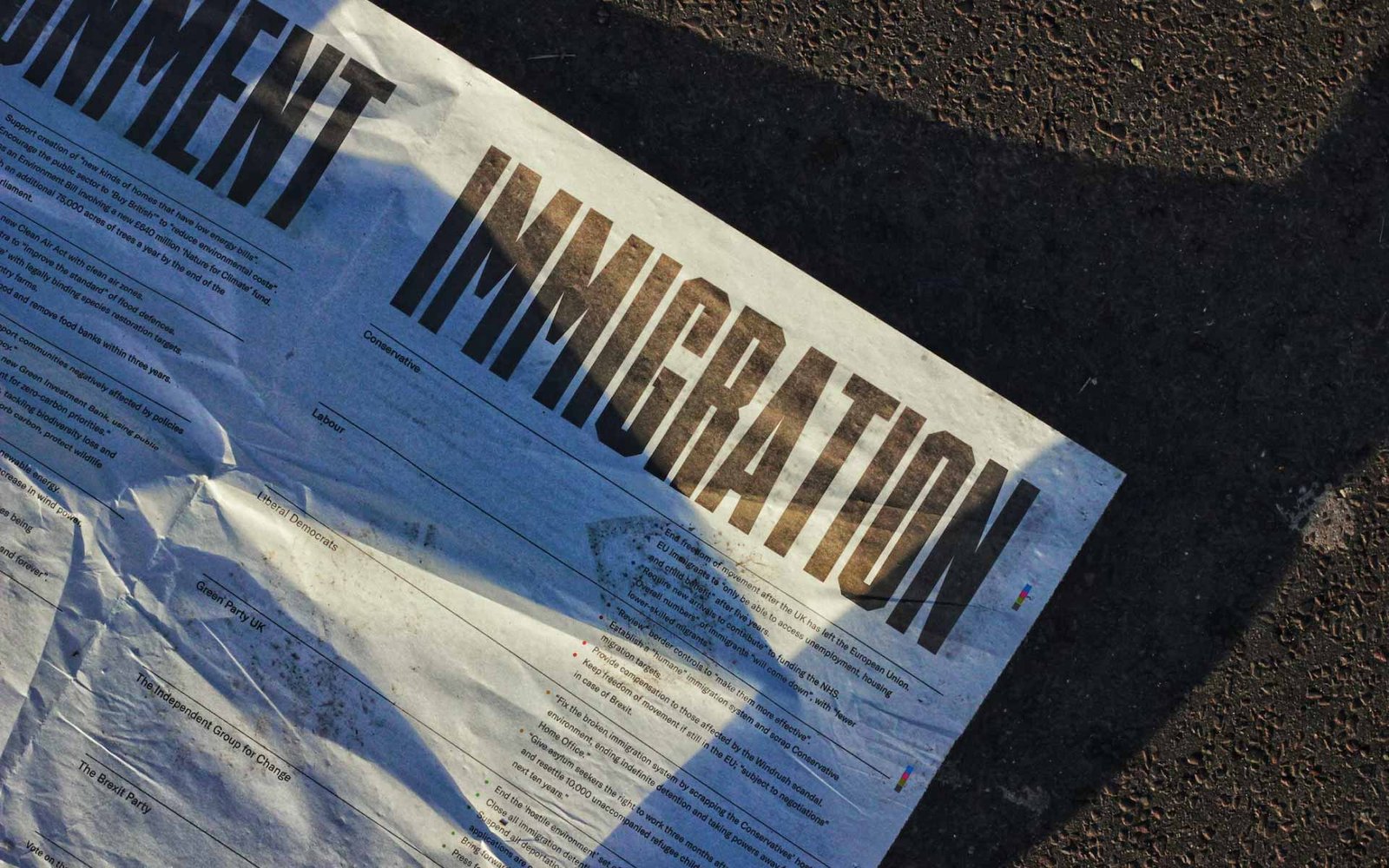United Nations, September 25, 2025 — At the podium of the 80th United Nations General Assembly, Laurent Saint-Cyr, president of Haiti’s Transitional Presidential Council (CPT), delivered a speech marked by both urgency and hope. Blending a stark assessment of Haiti’s reality with an appeal for global solidarity, he urged the international community to deploy a more potent force to restore order and to support the organization of “honest and credible elections.”
“Haiti, a country at war”
After briefly addressing global challenges such as hunger, poverty, forced migration, climate change, and terrorism, Saint-Cyr turned to Haiti’s plight. He described a country devastated by violence: “Bullets and fear extinguish innocent lives. Entire neighborhoods disappear. Thousands of children are denied access to education. Hundreds of women and girls are raped. Nearly half of the population faces acute food insecurity. The health system is collapsing.”
“This is the face of Haiti today,” he said solemnly, “a country at war, only four hours from here.”
A mission too limited to succeed
Saint-Cyr paid tribute to Haitian police officers and Kenyan soldiers who lost their lives fighting gangs, calling them “heroes who sacrificed themselves for the restoration of peace.” Yet, he acknowledged the shortcomings of the Multinational Security Support Mission (MMAS), which has deployed only about 1,000 personnel, far below expectations. “Despite their courage, their efforts were not enough to contain the crisis,” he admitted.
Even with a 40 percent increase in police funding, recruits, and equipment, Saint-Cyr stressed that Haiti now faces a regional threat fueled by transnational criminal networks. He argued that only a “robust force with adequate logistical and financial resources” can reestablish security. He thanked the United States and Panama for pushing at the Security Council for a resolution to create an international “gang suppression” force.
Pushing past political deadlock
Saint-Cyr warned against using the complexity of Haiti’s crisis as an excuse for inaction or endless negotiations, which he said only benefit the gangs. He praised the support of CARICOM, the OAS, and countries that have historically stood by Haiti, urging greater regional cooperation against arms trafficking, drug smuggling, and illicit financing. “Silence or inaction is not an option,” he declared.
Elections and political transition
Defending the legitimacy of the CPT, formed through a “political consensus” and backed by CARICOM, Saint-Cyr reaffirmed the council’s mission to deliver free and credible elections. He reported that 85 percent of polling centers have already been identified, 70 percent of election staff have been mobilized, and $65 million has been secured domestically to finance the process. “The Haitian people must be able to choose their leaders,” he said, while conceding that insecurity remains “the greatest obstacle.”
Economy, reparations, and diaspora
The CPT president also outlined plans for economic revival, announcing two development hubs in the North and South centered on agro-industry, textiles, renewable energy, tourism, and services. He urged the renewal of the U.S. HOPE/HELP trade legislation to sustain Haitian exports and jobs.
Marking the bicentennial of the “independence debt” Haiti was forced to pay France in 1825, Saint-Cyr praised recent acknowledgments from French President Emmanuel Macron and the French National Assembly. He announced the creation of a National Committee on Reparations and Restitutions, declaring that “justice and truth now demand concrete measures.”
He also highlighted the “invaluable contribution of the Haitian diaspora,” while acknowledging its ambivalence toward the state.
Migration, justice, and dignity
Saint-Cyr emphasized respect for migrants: “Behind every migrant is a face, a family, a story, and a contribution to the host country.” He called for more regular and humane channels for travel and commerce, particularly by air. On justice reform, he cited an April decree establishing two specialized judicial units, one for complex financial crimes and another for mass atrocities and sexual violence.
A patriotic conclusion
Closing his address, Saint-Cyr rejected any notion of “Haiti fatigue” within the international community. “Silence would not be neutrality, it would be complicity,” he warned. In a patriotic tone, he honored the resilience of the Haitian people, heirs to ideals of freedom and solidarity, and reaffirmed his mission to “restore hope.” He urged the world to join in “building peace in Haiti — for the Caribbean, for the Americas, and for humanity.”
Analysis: With his speech, Laurent Saint-Cyr sought to frame Haiti’s crisis as both a regional and global concern, linking gang violence to transnational crime, migration, and historical injustice. Yet while his appeal for a “robust force” and credible elections underscores urgency, the CPT’s limited domestic legitimacy and heavy reliance on international donors raise pressing questions about how his vision can be implemented.













